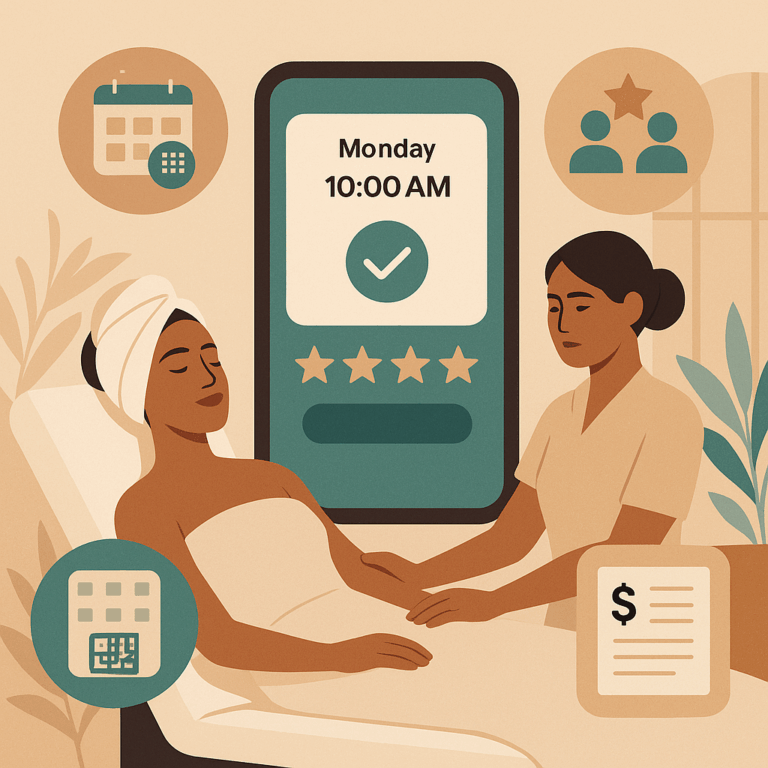How to Choose Accounting Software for Startups: Expert Guide
Executive Summary: Startups need efficient, scalable accounting software for rapid growth and compliance. This guide demystifies top features, major providers, and actionable steps to confidently select the best accounting solution for your startup.
Picture this: You’ve just closed your first funding round, excitement is high, and your team is ready to scale. Then comes the tangle of spreadsheets, lost receipts, and inconsistent invoices—numbers that just don’t add up. For startup founders, handling finances shouldn’t feel like deciphering an ancient code. The right accounting software can turn that chaos into clarity, letting you focus on innovation rather than the stress of manual bookkeeping. But with the explosion of SaaS options and emerging AI tools, how do you decide which platform fits your ambitions—and your bottom line?
Why Is Accounting Software Essential for Startups?
Startups are uniquely positioned: they face tight cash flow constraints, fast-changing operations, and rigorous stakeholder expectations. Traditional accounting approaches—manual spreadsheets and desktop software—often can’t keep pace with the dynamism or scale of a growing company. Here’s why modern accounting software is mission-critical:
- Automated Bookkeeping: Automates tedious tasks like categorizing transactions, reconciling accounts, and sending invoices, reducing human error (Source: Harvard Business Review).
- Financial Insights: Real-time dashboards help founders gauge burn rate, runway, and recurring revenue, supporting data-driven decisions vital for survival (Source: Inc.com).
- Investor Readiness: VC and angel investors expect accurate financials. Robust software eases audits, due diligence, and regulatory compliance from Day 1.
- Scalability: Cloud-based tools grow alongside your company, adapting to complexities like multi-currency, international tax, or multi-entity reporting.
Ultimately, solid accounting software becomes a digital backbone, driving smarter growth and minimizing avoidable financial mistakes.
What Core Features Should Startup Accounting Software Have?
Not all accounting platforms are created equal. When evaluating software, look for the following core features that support a fast-moving startup environment:
| Feature | Why It Matters |
|---|---|
| Easy Integration | Connects with business bank accounts, payment processors, payroll, and SaaS tools like Stripe or Shopify seamlessly. |
| Invoicing & Billing | Customizable, automated invoices with reminders to ensure faster client payments. |
| Expense Tracking | Tracks and categorizes expenses (credit cards, cash, and receipts) for accurate reporting and tax filing. |
| Real-Time Reporting | Live dashboards on cash flow, P&L, and KPIs so founders always know their financial health. |
| Multi-User Access | Lets founders, team members, and external bookkeepers collaborate with customizable permissions. |
| Tax Compliance Tools | Automates tax calculations, generates quarterly and annual reports, and tracks deductible expenses. |
| Scalability | Adapts to growing transaction volume, multiple entities, and evolving complexities as the business grows. |
Ideally, the software should be cloud-based with robust mobile access, supporting founders on the go.
How Do Leading SaaS Accounting Platforms Compare?
The crowded SaaS market can make selection overwhelming. Below is a quick comparison of three top accounting software options favored by startups:
| Product | Best For | Key Pros | Limitations | Pricing (as of 2024) |
|---|---|---|---|---|
| QuickBooks Online | U.S. startups, scaling ease | Best-in-class integrations, strong reporting, wide accountant support | Steep learning curve, higher pricing for advanced features | Starts at $30/mo |
| Xero | Global expansion, SaaS companies | Intuitive UI, strong multi-currency, robust expense handling | Limited payroll in U.S., weaker inventory tracking | Starts at $13/mo |
| FreshBooks | Service-based, freelancers, solopreneurs | User-friendly, excellent invoicing, time tracking | Fewer integrations, less advanced analytics | Starts at $17/mo |
Other platforms to research include Wave (free, ideal for pre-revenue startups), Zoho Books (cost-effective for global teams), and Sage Business Cloud (enterprise integration).
What Security and Compliance Should Startups Demand?
Financial data is a favorite target for cybercriminals. Choosing software with robust security is non-negotiable. Look for these baseline protections:
- Data Encryption: All sensitive data should be encrypted in transit (SSL/TLS) and at rest.
- Access Controls: Multi-factor authentication (MFA) and customizable roles limit exposure and insider threats.
- Regular Backups: Automated cloud backups allow fast recovery from ransomware or accidental loss.
- Regulatory Compliance: For global startups, ensure software is compliant with GDPR (EU), SOC 2 (US), or other relevant financial regulations.
Due diligence on your vendor’s history regarding data breaches, and their incident response protocols, is equally critical. Industry standards and certifications (like SOC 2 Type II) serve as trust signals.
How Do You Evaluate Accounting Software ROI?
Measure ROI by calculating time saved, reduction in bookkeeping errors, and increased clarity for funding or business pivots. Many startups see a 100%+ increase in accounting efficiency after moving from spreadsheets to SaaS platforms (Source: Deloitte).
Track benchmarks such as:
- Hours/week saved by automated bank feeds and expense tracking
- Speed of close: Days needed to reconcile books at month/quarter-end
- Frequency of manual data entry errors before and after adoption
- Improvement in cash flow forecasting for capital planning
Also, factor in the cost of additional modules or user seats as your team grows—it’s crucial to choose a solution that’s transparent with pricing and upgrade pathways.
Ready to streamline your finances?
Explore our SaaS reviews for deeper dives into top accounting platforms, or read expert startup technology guides at DBA Technology.
How Should Startups Plan for Implementation and Growth?
Launching accounting software isn’t simply a plug-and-play endeavor. Success depends on strategic planning, clear workflows, and staff buy-in. Here’s a roadmap:
- Map Financial Processes: Before migrating, document your startup’s unique workflows—billing, approvals, payroll—to avoid misconfigurations.
- Trial Runs: Most top platforms offer free trials or demos. Use this period to test integration with existing software and assess reporting outputs.
- Train the Team: Designate a champion—often the founder or finance lead—to learn the system deeply and onboard colleagues. Vendor tutorials or online courses shorten the ramp-up.
- Future-Proof: Choose software that grows with you: consider needs like multi-entity consolidation or advanced analytics for Series A and beyond.
- Leverage Support Communities: Platforms like QuickBooks and Xero maintain extensive online support forums, webinars, and certification programs. Engaging here cuts troubleshooting time and reveals power tips from fellow founders.
What Are Key Mistakes to Avoid When Choosing Accounting Tools?
- Overbuying Complexity: Don’t pay for features like inventory or advanced audit unless truly needed—complexity can slow teams and obscure the basics.
- Neglecting Integration: Overlooking whether your chosen software plays well with your favorite payment processors, HR, or CRM can cause data silos and duplicate entry headaches.
- Ignoring Vendor Reputation: Fast-moving startups can’t afford outages or unsupportive vendors. Review independent testimonials and trust pilot ratings before deciding.
- Forgetting About Mobile: Founders are often on the road or working remotely—ensure there’s a robust mobile app for receipt capture, approvals, and banking.
- No Exit Strategy: Data portability matters. Ensure exporting your data (to Excel, CSV, or a competitor) is easy in case you ever need to switch platforms.
These pitfalls, if avoided, save startups costly headaches and time-consuming migrations later as the business evolves.
How Can AI and Automation Enhance Startup Accounting?
2024 sees AI becoming a game-changer in small business accounting. Here’s where automation and smart algorithms can make a difference:
- Auto-Reconciliation: AI “reads” bank feeds and automatically pairs transactions to receipts, slashing manual labor.
- Smart Categorization: Machine learning learns your expense patterns and applies the correct accounting codes with increasing accuracy.
- Forecasting: Advanced platforms offer AI-powered predictions of monthly cash flow, spending spikes, or late-paying clients.
- Anomaly Detection: Instant alerts flag suspicious transactions or deviation from typical business activity for early fraud detection.
While no tool fully replaces human oversight, AI-powered platforms (like QuickBooks Advanced or Zoho Books with integrated AI) empower lean finance teams to operate with unprecedented speed and accuracy.
FAQs
What is the best accounting software for an early-stage startup?
QuickBooks Online, Xero, and FreshBooks are top options, chosen for ease of use, core features, and scalability for young companies.
How much should a startup budget for accounting software?
Most startups pay between $13–$50 per month per user, with costs scaling based on features and number of users.
Do I need an accountant with cloud accounting software?
Software automates much of the work, but an accountant helps with tax strategy, compliance, and complex reporting as the startup grows.
Can accounting software integrate with my payment tools?
Yes, leading platforms integrate with Stripe, PayPal, Shopify, and other SaaS tools to sync transactions automatically.
Is free accounting software or spreadsheets sufficient for startups?
Spreadsheets may work pre-revenue, but robust SaaS options save time, reduce errors, and support due diligence as your business grows.
What security features should I look for in startup accounting software?
Essential features include data encryption, MFA, access controls, regular backups, and regulatory compliance certifications.
Will accounting software support my startup as I scale?
Top solutions easily adapt with features for multiple users, entities, international currencies, and advanced reporting as you grow.
Choosing accounting software for your startup isn’t just about ticking off feature boxes. It’s a strategic move that impacts investor confidence, internal transparency, and your company’s ability to maneuver quickly in a competitive landscape. Armed with the insights from this guide, make a shortlist, test-drive your options, and select a platform that will keep your financial foundation strong no matter how fast you move.
Take the next step: For further expert insights on SaaS solutions, visit our dedicated SaaS hub—and empower your startup to scale smarter and faster.
About the Author: Dr. Alex Hayden is a technology strategy consultant and columnist, specializing in SaaS, startup operations, and digital transformation for high-growth businesses.
References: Harvard Business Review, Deloitte, Inc.com






